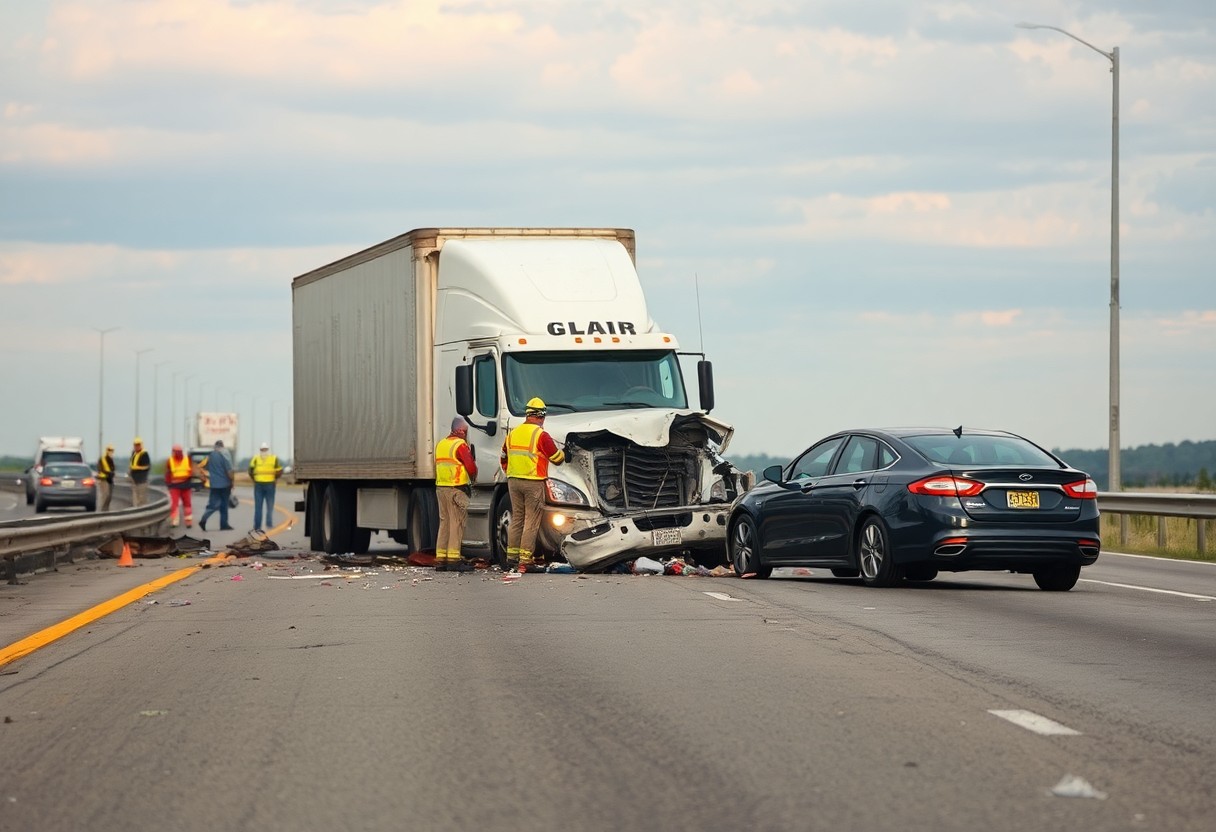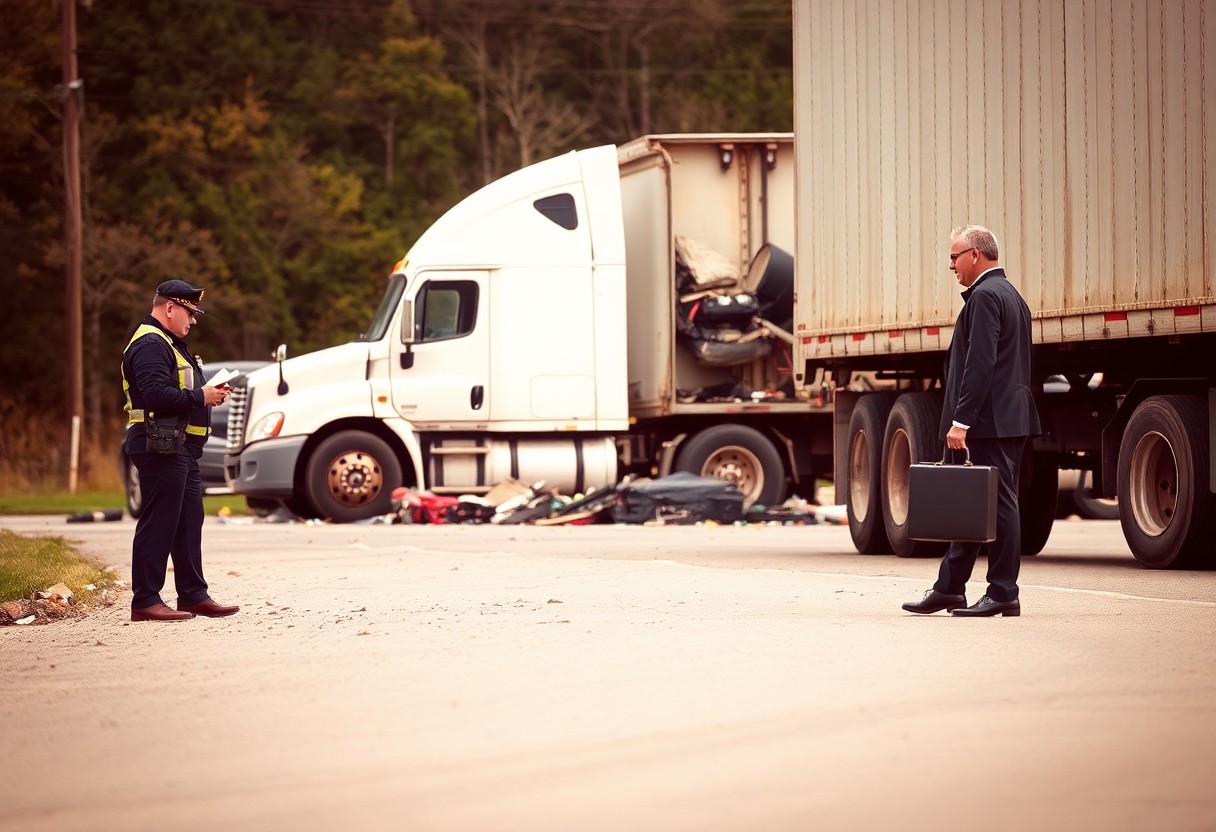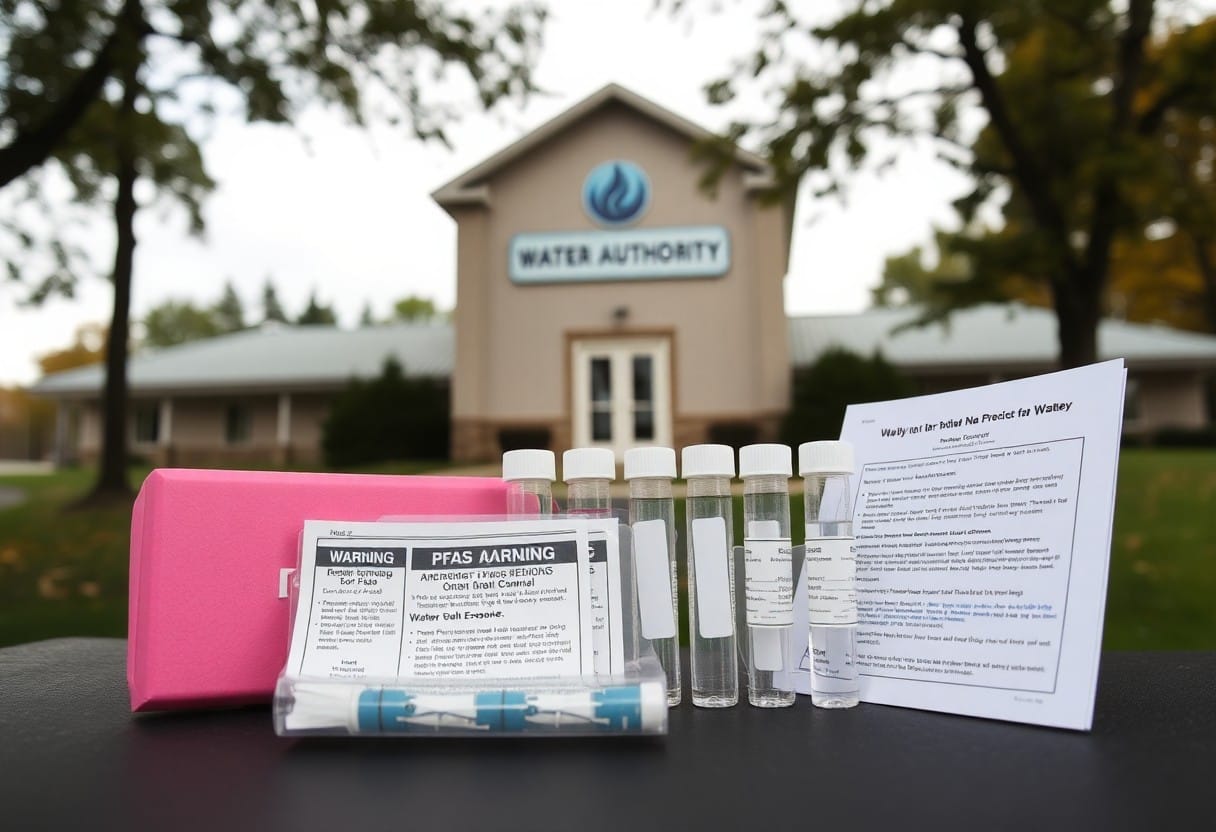There’s an urgent need to ensure responsibility and transparency when dealing with trucking company accidents in Birmingham. If you find yourself in a situation where your safety and rights have been compromised due to a trucking incident, knowing how to navigate the accountability process is important. This guide will walk you through the steps to take, from gathering important evidence and filing claims to working with legal professionals who can help advocate for your interests. By following these steps, you can gain the assurance that the responsible parties are held accountable.
Understanding the Legal Framework
The legal framework surrounding trucking accidents in Birmingham encompasses federal and state regulations that govern the operation of commercial vehicles. Understanding these regulations is important for holding a trucking company accountable. Key laws involve safety standards, driver qualifications, and liability, which can vary based on whether the truck is operating within interstate or intrastate commerce. Knowing these nuances not only informs your case but also empowers you to navigate the complexities of claims effectively.
Importance of Regulations
For successful litigation, you must understand the regulations that govern trucking companies. These rules are designed to ensure safety on the roads, and adherence to them can greatly impact the outcome of your case. When a trucking company violates these regulations, it can be held liable for any resulting accidents. Your knowledge of these regulations can strengthen your position in pursuing justice and compensation for your injuries.
Common Legal Challenges
Challenges arise when pursuing claims against trucking companies, as they often have extensive legal resources and knowledge to defend against liability. You may face difficulties in proving negligence, as trucking companies may argue that their drivers followed all regulations. Additionally, gathering evidence can be more complex due to truck maintenance records and driver logs that may not be readily accessible. Insurance companies also employ various tactics to minimize payout liabilities, further complicating your journey toward accountability.
This complex legal landscape can be overwhelming. You might find that trucking companies prioritize protecting their interests, making it difficult to prove negligence. Furthermore, navigating the intricacies of multi-tiered liabilities—including those involving drivers, trucking companies, and manufacturers—requires a thorough understanding of both legal doctrines and industry practices. Understanding these challenges is vital, as they can directly impact your ability to secure fair compensation for your injuries.
Gathering Evidence
While pursuing accountability in a Birmingham truck accident, your first step is gathering evidence. Collecting documentation, photographs, and witness accounts can strengthen your case against the trucking company. Ensure you are thorough, as even minor details can play a significant role in establishing fault and securing the compensation you deserve.
Documenting the Accident Scene
While documenting the accident scene, take photographs from multiple angles, capturing road conditions, vehicle damage, and traffic signage. These visuals will help convey the scenario and aid in illustrating negligence on the trucking company’s part. Be sure to retain all physical evidence, such as debris or damaged personal items.
Collecting Witness Statements
Some witnesses may be willing to share their observations regarding the accident, which can provide valuable insights into the incident. Obtaining these statements as soon as possible ensures their recollections remain fresh, further solidifying your case against the trucking company.
Evidence plays a vital role in establishing liability. Witness statements can include firsthand accounts of the truck’s behavior leading up to the accident, driver conduct, and potential violations of traffic laws. Ensure you gather their contact information and a brief description of what they observed, as this could significantly tip the scales in your favor. The more details you can collect from eyewitnesses—such as vehicle speeds, weather conditions, and any irregularities—the stronger your case will be in holding the trucking company accountable.
Determining Liability
There’s a significant process involved in determining liability after a trucking accident in Birmingham. Establishing who is at fault requires thorough investigation and analysis of the circumstances surrounding the incident. You must look into various factors, including weather conditions, road safety, and the actions of the trucking company and its drivers. By gathering evidence, witness statements, and police reports, you can begin to understand who may bear responsibility for the accident.
Identifying Responsible Parties
Any trucking accident often involves multiple parties that may share responsibility. This can include the truck driver, the trucking company, vehicle manufacturers, and even third-party logistics providers. By identifying all potential liable parties, you are better positioned to pursue compensation for damages incurred during the accident.
Understanding Negligence
Understanding the concept of negligence is vital when evaluating liability. This refers to the failure of a party to exercise a reasonable standard of care, resulting in injury or damage. In the context of trucking accidents, drivers may neglect safe driving practices, and trucking companies might overlook proper training or maintenance of their vehicles. Identifying these acts of negligence is crucial in proving fault and seeking justice.
With a focus on negligence, you should consider how various factors play into the incident. For example, if a driver was speeding, under the influence of drugs or alcohol, or distracted while driving, you can establish a direct link between their actions and the accident. Additionally, if the trucking company failed to conduct adequate background checks or provided insufficient training, you can hold them accountable as well. Documenting these elements strengthens your case for liability, enhancing your chances for a fair resolution when pursuing damages.
Communicating with Insurance Companies
Keep detailed records of all communication with the insurance company regarding your Birmingham accident. Document dates, times, representatives’ names, and summaries of discussions to build a clear understanding of your case. This meticulous approach will support your position and ensure you have evidence in case of potential disputes.
Tips for Effective Negotiation
With effective negotiation tactics, you can maximize your compensation from the insurance company. Consider the following strategies:
- Be clear and concise in your communication.
- Know the value of your claim based on damages.
- Stay firm but polite during discussions.
- Present documented evidence to support your case.
After you’ve employed these tactics, you’ll be better positioned to reach a fair settlement.
Common Pitfalls to Avoid
For successful interactions with insurance companies, steer clear of frequent missteps. Understanding these pitfalls can prevent claim denial.
Companies often lowball initial offers or employ tactics to minimize your perceived damages. Avoid accepting the first offer without thorough analysis, as it may undervalue your claim. Don’t hesitate to seek a second opinion and refrain from making recorded statements without legal counsel. Above all, keep your emotions in check; allowing frustration to guide your responses can be detrimental to your case. Your approach to communication directly impacts the outcome of your negotiations.

Working with Legal Professionals
All truck accidents can result in complex legal challenges, especially when navigating the responsibilities of trucking companies. Partnering with experienced legal professionals can streamline the process of holding these companies accountable and ensuring you receive the compensation you deserve. A knowledgeable attorney will help guide you through the intricacies of the law and advocate for your rights throughout the entire process.
Choosing the Right Attorney
You need to select an attorney who specializes in trucking accident cases. Look for someone with a proven track record, as they will understand the nuances of transportation regulations and how to effectively pursue claims against large companies. Arrange consultations to assess their approach and ensure they align with your needs.
How Lawyers Can Help
Choosing the right legal representation can significantly impact your case’s outcome. An attorney will help you gather necessary evidence, such as accident reports and witness statements, while also assisting in negotiating with insurance companies. They will craft a strong case that highlights the trucking company’s negligence and advocate for maximum compensation.
The role of your attorney goes beyond just filing paperwork; they become your key ally in a challenging time. They will investigate the accident, analyzing factors like driver logs and vehicle maintenance records. With their expertise, you can focus on healing while they handle legal proceedings. Having a skilled lawyer can lead to a more favorable settlement, ensuring that your rights are protected and that you receive the compensation you need to recover and rebuild your life.
Settling Your Claim
Now that you’ve compiled evidence and documented your injuries, it’s time to focus on settling your claim with the trucking company. This process typically involves negotiations between you and their insurance representatives. Be prepared to present your case clearly and assertively, supporting your arguments with the details of the accident, medical records, and any other evidence you’ve gathered. The goal is to reach a fair settlement that compensates you for your damages and suffering.
Factors Influencing Settlement Amounts
Your settlement amount can vary based on several important factors, including:
- Extent of injuries
- Medical expenses
- Lost wages
- Pain and suffering
- Negligence of the trucking company
Assume that the more severe your injuries and damages, the higher the potential settlement amount you may receive.
Timing Your Settlement
Any delay in filing your claim can impact your settlement amount. It’s vital to act promptly, as waiting too long might lead to a diminishment in the evidence or the witness’s recollection of the accident. Insurance companies often prefer to settle quickly, but you will want to ensure that you have fully evaluated all your expenses and losses first.
To achieve the best possible outcome, you should aim to settle your case when you fully understand the impacts of the accident. Waiting patiently enables you to gather all the necessary documentation, including medical records and accident reports, while also allowing time for your injuries to heal. This way, your claim incorporates all aspects, including ongoing medical treatment and any implications for your future. By timing your settlement right, you ensure that you won’t shortchange yourself in the process, leading to better compensation for the damages suffered.
Final Words
To wrap up, holding a trucking company accountable for a Birmingham accident involves understanding your rights, documenting the incident thoroughly, and gathering evidence to support your claim. You should also be prepared to communicate effectively with legal professionals and insurance companies to advocate for your interests. By following these steps and remaining vigilant, you can navigate the complexities of this process and work towards securing the compensation you deserve.



















